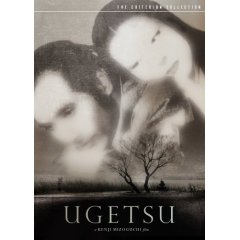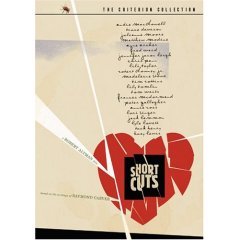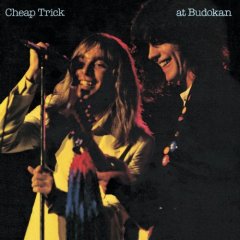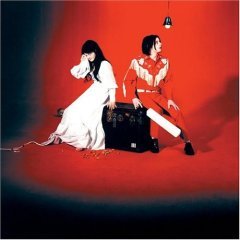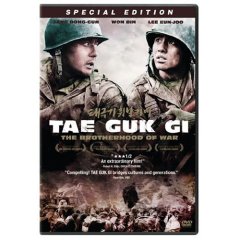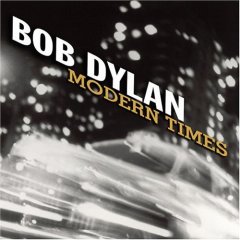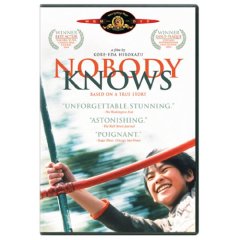
Well, the year is almost over. In entertainment, it wasn't that big a year for me but the highlights that were there I enjoyed. In music, a lot of old timer (my era) groups released music and toured but not much happened with new artists. Movies were pretty dull this year, I spent a lot of the year watching older films. In television, I've found I'm starting to enjoy Sci-Fi shows a bit more (Battlestar Galactica and the reruns of Firefly) but animated series dominate what I watch now. I hope 2007 is a little better than this year, which was filled with some decent entertainment but not much stood out. Except my picks for the year of course, which are:
Music
Top 5 songs1.
"Life Wasted" by Pearl Jam
Pearl Jam wrote their best song in ages with this frantic rocker. For the first time in over a decade, PJ wrote a song with a hook and this tune stuck in my head all summer long. An inspiring and motivating rock song if there ever was one.
2.
"Promiscuous" by Nelly Furtado featuring TimbalandThe "I'm Like A Bird" hippie reinvented herself as a club lovin' single gal on the catchiest song of the past year. It first showed up in phone commercials and then caught on from there. The tune reeks of 80's pop rap with the percussive beat, glossy synth lines and bass eq'ed male vocals. It even had a bit of storytelling with the male / female back and forth vocals of two single people looking for sex on their terms. Furtado's confessional rapping and Timbaland's "playa" attitude made for a lot of fun in 2006. Second best duet of '06: "Like We Never Loved At All" by Country couple Faith Hill and Tim McGraw. Get a hanky for that one.
3.
"Woman" by WolfmotherIt's Led Zeppelin! No, it's Black Sabbath!! Wait, it's Deep Purple!!! Actually, it wasn't any of those bands but an Austrailian trio who mimics them. Wolfmother's "Woman" blasted out of stereos like it was 1973 this year with a hard charging guitar riff and howling rock god vocals. If Robert Plant hadn't been ripped off so many times before, he probably would have had an issue. No finesse or art is this one, just balls to the walls rock. Classic rock pastiche runner up: Hinder's Aerosmithian power ballad "Lips Of An Angel".
4.
"King of Might Have Been" by ChicagoIn high school I was a huge fan of Chicago mainly for their melodramatic ballads. Decades later, the venerable band proves you can never run out of syrup with yet another overblown power ballad. All of the band's hallmark moves are here: pleading vocals, rapid fire bass line changes, a synthesizer orchestra and dramatic horn breaks. It sounds like a formula for disaster, but instead the song proves some things stay great just the way they are. Second runner up for balladeer bombast: Meat Loaf's "It's All Coming Back To Me Now".
5.
"Tell Me Baby" by Red Hot Chili PeppersThe Pepper's second single from Stadium Arcadium was their bounciest funk groove in years, a bopping tune laced with a soothing chorus. Just when it seemed like they would become new age adult contemporary, RHCP hit back with their funnest song since the 90's. The next best song for silly fun - "Hips Don't Lie" by Shakira and Wyclef Jean.
Top 5 Cds: 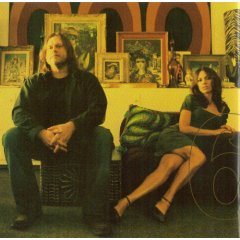
1.
Matthew Sweet and Susanna Hoffs - Under The Covers Vol. 1
It seemed like an unlikely candidate for anything memorable when 90's one hit wonder Matthew Sweet ("Girlfriend") teamed up with 80's minor sex symbol Susanna Hoffs (The Bangles) to play the power pop songs they loved from the 60's. But the duo's love and considerable taste for the genre shines through on this 15 track disc. They cover Dylan ("It's All Over Now Baby Blue"), Young ("Cinnamon Girl" and "Everybody Knows This Is Nowhere"), Love ("Alone Again Or"), the Beatles, the Who...the list goes on. Through it all is tasteful production and strong vocals that pay tribute to the Summer of Love without getting stuck in it.
2.
Tom Petty - Highway CompanionA couple of years ago I became a huge fan of Tom Petty after a decade of ignoring him. I was discouraged by 2004's concept album The Last DJ and was discouraged to hear there was a theme to Highway Companion (driving and aging). My fears were put to rest with this disc, a sturdy set of songs with Petty slightly echoing his past hits. The ZZ Topish "Saving Grace", Byrdsy "Flirting With Time" and the...well, Tom Pettyish "Big Weekend" & "Ankle Deep" were strong enough tunes to ensure multiple plays in my car.
3.
Pearl Jam - Pearl JamThey said it couldn't be done...Pearl Jam said that is. After deciding to consciously write the least catchiest songs possible nearly a decade ago, the band did away with their policy and wrote the hookiest hard rock songs they've done since their debut. Eddie Vedder rails against all authority and humans rights violations with the same passion and angst he held during the first Bush's Presidency. "World Wide Suicide" pulls no punches with it's anti war views while the slamming "Big Wave" will have you wondering if you accidentally left your Soundgarden CD in the player.
4.
The Strokes - First Impressions of EarthTechnically a 2005 release, The Strokes third album saw them toss away the lo-fi vibe to their previous discs and replace it with punchy production and longer arrangements. "Fear of Sleep" was a personal favorite of mine with it's classic Strokes sound guitars and throbbing bass. The lead single "Juicebox" effectively recalled Franz Ferdinand while "Razorblade" pulled it's melody from Barry Manalow's "Mandy" of all things. If only they handn't chosen the dense, spidery "Heart In A Cage" as the second single bigger things might have come from this album.
5.
Def Leppard - Yeah!It was a tough call for this one. Bob Dylan's Modern Times was a strong disc as well and I already selected a covers album earlier. But I'm basing this list on what I played and Yeah! was the fifth most played CD for me in 2006. It helped that I saw them live this year as well. Focusing on the 70's glam rock that inspired them, Def Lep threw down their hardest rocking performance since Pyromania. The T Rex classic "Twentieth Century Boy" was a big favorite of mine. There are a few missteps, mainly a cover of the Kink's "Waterloo Sunset" with all the whimsy sucked out of it. Covers of Sweet, Bowie and Badfinger all hit hard and strongly bear the Def Leppard stamp. Even a cover of Michael Essex's "Rock On", a song I personally hate, can't stop me from listening to Def Lep.
Movies 
1.
Casino RoyaleJames Bond returned with an actual storyline and gritty attitude in Casino Royale, the most grounded Bond film since...From Russia With Love (it can be argued that For Your Eyes Only and On Her Majesty's Secret Service get close). New Bond Daniel Craig brings a newfound ruthless aggression to the role of the well known superspy. Movie of the year.
2.
Little Miss SunshineFamily road comedies arrive a couple of times a year, but few have any real heart. Little Miss Sunshine is all about having heart in the face of imminent disaster and is one of the few films of honest emotion I saw this year.
3.
Akeelah and the BeeIt seems a bit like an afterschool special, but this heartwarming film about an inner city girl studying like Rocky for a spelling bee is truly inspiring and effective. Lawrence "Morpheus" Fishburne excels as the spellling bee coach and the lead actress whose name I can't remember is entirely believable as an intellectually earnest yet street hardened young girl. A little sappy and predicatble, but emotionally affecting.
4.
X-Men 3
It says a lot that this is number 4, because this is not a great movie. It's an OK movie. Comic book violence and more Mutants than you can shake an adamantium claw at mark Brett Ratner's entry in the trilogy.
5.
Mission Impossible 3Tom Crazy-I mean Cruise, released his third Mission Impossible movie that for the first hour or so is the best MI you've ever seen. Big stunts, double crosses and micro technology abound in a big spy game swirl until you get to the end. The ending is so unbelievably sappy and unreal that it drains the credibility established by the first half leaving you entertained but disappointed.
Television1.
Family Guy 
Freakin' sweet! Peter Griffin and his nutty family returned from cancellation with a vengence. A comedy that shamelessly slaughters all sacred cows with no compunction or remorse is something to marvel at and Family Guy is that comedy. Even better, the show has caught on with a mass audience to ensure a few more years of yuks from the most tasteless, thoughtless humor around.
2.
Star TrekThe classic series got the George Lucas treatment with a remastered picture and new digital special effects. What's better than Star Wars is the fact that no major plot points were harmed in the remaking of these episodes. Now, with new digital effects you can see the Enterprise orbit a planet while Kirk shakes his hands and yells "Khaaannnn!" Wait, that didn't happen until the movies. Well, you get the point.
3.
As Time Goes ByVeteran actors Judi Dench and Geoffrey Palmer have a December-December romance in the reruns of this British comedy. A sense of character and true wit engages the viewer in this genial show. Dench and Palmer play a middle age couple who split on bad terms during the Korean War. A show with this much warmth and class is something rare, As Time Goes By is a fun and relaxing show.
4.
Gokusen
The Japanese anime series about a high school teacher with a Yakuza background is a blast with it's bizarre tone about honor and compassion. Teacher Yakumi can barely conceal her Underworld bloodlust while teaching teenagers about life and mathematics. Big fun!
5.
WWE Raw
Pro Wrestling's number 1 show continues on with reduced expectations. Fewer name wrestlers playing to smaller crowds would be enough to make some shows stop, but WWE Raw flies in the face of public opinion by getting back to basics. A mix of classic wrestling angles, Raw now features long time name wrestlers fighting in between cheesy interviews and big stunts.
Now, 2006 comes to a close. I didn't get the Who or Eric Clapton's CD's, so I can't include them in this review. Still, Christmas is coming soon and more reviews will follow. Until then, have a Happy Holidays!


